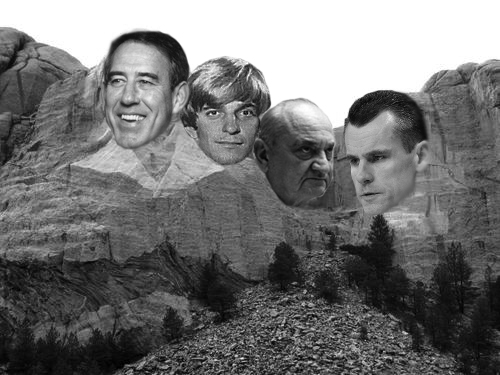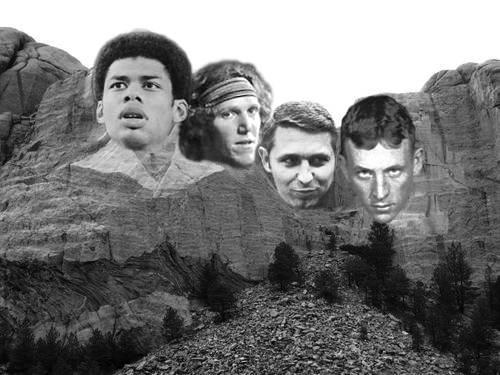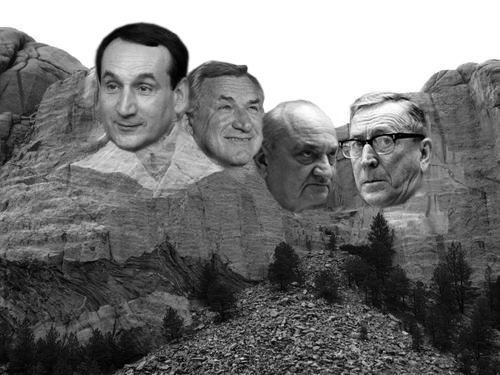SEC Mount Rushmore
Posted by EMoyer on February 21st, 2012Eric Moyer is the RTC correspondent for the Atlantic Sun Conference and Southern Conference and a contributor to the RTC SEC Microsite. You can find him on Twitter @EricDMoyer.
In honor of President’s Day, RTC is putting together the Mount Rushmores of the six power conferences. For all the history in the SEC, picking four who represent all of basketball proved difficult and will surely (hopefully) create good debate. So without any delay, here’s the Mount Rushmore of SEC basketball:
Adolph Rupp – Kentucky: Rupp, a fixture on the Mount Rushmore for all of college basketball easily earned one of the four coveted spots. Rupp learned under Phog Allen while playing at Kansas, then came to Kentucky and ultimately passed Allen before retiring as the winningest coach in college basketball history. His Wildcat teams won four NCAA titles (1948, 1949, 1951, and 1958) and 27 SEC titles in his 41 years on the bench. In 11 of those years, he posted undefeated seasons in SEC play. In SEC Tournament play, he posted a 57-6 record with 13 more titles. During the height of his reign, he made it nearly impossible for teams to win at Kentucky. Rupp authored the longest home court winning streak in Division I history, winning 129 straight from January 4, 1943, to January 8, 1955. As part of his legacy, his name adorns the current Wildcat home court, Rupp Arena, the student section is named the eRUPPtion Zone, and one of the major national player of the year awards is the Adolph F. Rupp Trophy.
Pete Maravich – LSU: When your conference boasts the all-time leading scorer in Division I despite only getting to play three seasons due to an NCAA rule prohibiting freshmen from playing for the varsity team, you can guarantee another spot on Mount Rushmore. Combine his mythical status and ball-handling wizardry, the choice of Pete Maravich is almost as easy as Rupp. He still holds 15 NCAA records and owns the top scoring seasons for a sophomore, junior, and senior. On the LSU freshman team, he scored an additional 741 points and averaged 43.6 points per game. The Sporting News, AP, and UPI named Maravich a First-Team All-America in 1968, 1969, and 1970. In 1970, he claimed the Naismith Award and Player of the Year awards from The Sporting News and the USBWA. Like Rupp, Maravich’s name lives on as the Tigers play in the Pete Maravich Assembly Center.












































